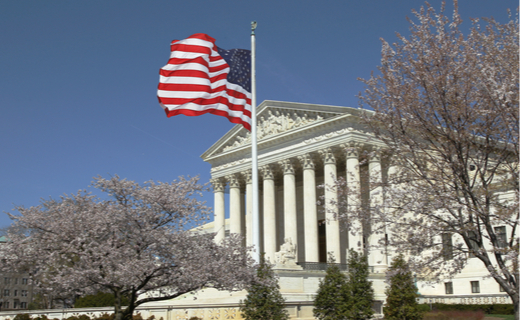Politics
SCOTUS Justice Ketanji Brown Jackson Argues Constitutional Amendments Aren’t ‘Race-Blind’

Supreme Court Justice Ketanji Brown Jackson is trying to make the case that the framers of the “Reconstruction Amendments” did not actually intend for them to be “race-neutral” or color-blind. Because we can’t just try and treat each other as human beings. Everything has to be about the color of a person’s skin these days. And we wonder why Americans don’t have each other’s backs anymore?
According to a report from TheBlaze, Jackson used so-called “progressive-originalist” methodology during oral arguments in the Merrill v. Milligan case to shoot down any assertions of “color-blind” remedies to questions concerning voter discrimination.
“The case centers on Alabama’s redistricting map, in which lawmakers gerrymandered districts in such a way that only one is majority black. Under the proposed map, black residents have control over just 14% of the state’s congressional districts despite being roughly 27% of the state population,” TheBlaze stated.
The crux of the issue is whether or not the “race-blind” method of drawing congressional districts is actually discriminating against minority voters.
“After hearing arguments from Alabama Solicitor General Edmund LaCour, Jackson asserted that the entire point of the Reconstruction Amendments — the 13th, 14th, and 15th Amendments — was to provide a race-based legal remedy to problems that former slave states otherwise refused to adopt,” TheBlaze reported.
“I don’t think we can assume that just because race is taken into account that that necessarily creates an equal protection problem,” the justice went on to say during oral arguments.
The Supreme Court Justice then went on to explain that after she took a long look at the justification used by the framers of the post-Civil War amendments, “it became clear to me that the framers themselves adopted the Equal Protection Clause, the 14th, the 15th Amendment, in a race-conscious way.”
“That we were, in fact, trying to ensure that people who had been discriminated against — the Freedman, during the Reconstruction period — were actually brought equal to everyone else in society,” she continued.
To provide support for her thesis, Jackson cited the Report of the Joint Committee on Reconstruction, a document drafted by the same individuals who helped to write the 14th Amendment. The report goes on to provide legal rationale for the constitutional protections these folks considered to be necessary after slavery ended.
“That report says that the entire point of the amendment was to secure rights of the freed former slaves,” Jackson then explained. “The legislator who introduced that amendment said that ‘unless the Constitution should restrain them, those states will all, I fear, keep up this discrimination and crush to death the hated Freedman.’ That’s not a race-neutral or race-blind idea in terms of the remedy.”
Jackson pointed out that one purpose for adopting the 14th Amendment was to help establish a legal basis for Civil Rights Act of 1866. This legislation “specifically stated that citizens would have the same civil rights as enjoyed by white citizens. That’s the point of that act, to ensure that the other citizens, the black citizens, would have the same as the white citizens.”
So how is the highest court in the land going to rule on the matter? At this point, we can’t really say for sure. Even the more conservative-leaning justices serving on the bench seemed to be skeptical of the arguments LaCour was making. Looking at the questions that were asked by Justice Brett Kavanaugh, it’s completely possible he might end up siding with his liberal colleagues in the case.
However, many believe Alabama will end up being victorious, though it won’t be a very big win, but one with narrow margins.

